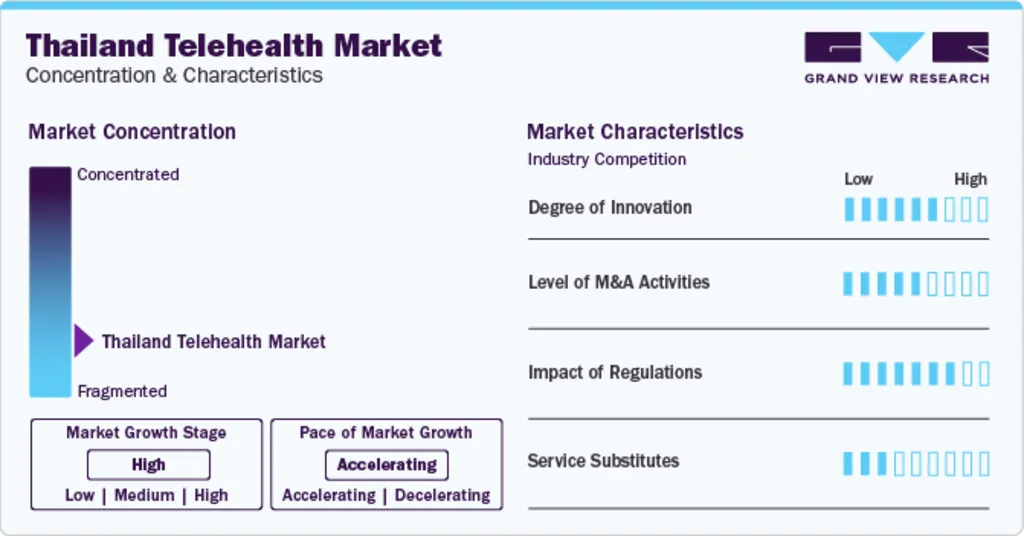Thailand’s healthcare system is going digital fast. In 2024, the digital health market is set to reach US$1.030 billion, and by 2028, it’s projected to grow to US$1.376 billion, expanding at a CAGR of 7.51%. This marks a turning point in how people access, manage, and pay for healthcare. At the heart of this shift is the Thailand Digital Health Transformation, powered by government policy, rising consumer demand, and a wave of new technologies.
Thailand Digital Health Transformation: A Revolution Powered by Tech
From telemedicine platforms and electronic health records (EHRs) to mobile apps and wearables, digital tools are now embedded in Thailand’s healthcare ecosystem. These technologies help hospitals work more efficiently and give patients more control over their care.
The government’s Thailand 4.0 strategy has been central to this progress. By investing in infrastructure, regulation, and digital awareness, it has created a supportive environment for both startups and established players in health tech.
Consumers Are Driving the Shift
Digital health isn’t just growing in size but also changing habits. More Thai people, especially younger generations and urban professionals, now rely on digital health services. Fitness apps and health monitors are the most popular, followed by telemedicine and EHRs.

During the COVID-19 pandemic, platforms like Doctor Raksa saw over 10,000 medical visits each month, a number that revealed just how ready the public was to embrace digital care.
In 2024, the average revenue per user (ARPU) for digital health is expected to reach US$42.78, a sign that more people are willing to invest in their digital health experience.
Read Also: Thailand Consumer Simplicity Preference Shift in Action
Solving the Rural Access Gap with Thailand Digital Health Transformation
Digital health is especially critical in rural Thailand, where 70% of the population lives, but 70% of medical specialists are in Bangkok. Telemedicine is helping to bridge this gap, connecting patients in remote areas with doctors in the capital.
Government partnerships with local tech companies have created national telemedicine platforms, significantly increasing rural access and registration rates. This is not just innovation—it’s equity in action.
Beyond Basics: AI, Wearables, and Innovation
Thailand’s digital health sector is also embracing more advanced technologies. Wearable devices, AI-driven diagnostics, and real-time health analytics are now being used to track conditions, personalize care, and even predict health risks.
Backed by investments and partnerships between tech firms and healthcare providers, these tools are creating custom solutions for the Thai market.
The telehealth market alone was valued at USD 1.60 billion in 2023 and is expected to grow at a CAGR of 29.1% through 2030, showing how quickly digital care is becoming the norm.
Thailand Digital Health Transformation: A Digital Future for Thai Healthcare
Thailand’s health sector is undergoing real, measurable change. From expanding digital access to rethinking care models with AI, the Thailand Digital Health Transformation is reshaping healthcare for good. With strong government support, rising consumer demand, and technological innovation, Thailand is building a healthcare system that’s not only smarter, but also more accessible, efficient, and inclusive. The future of healthcare in Thailand is not just digital. In fact, it’s already here.
Read Also: Does Thailand Healthcare Market Expansion Attract Foreign Investors?







